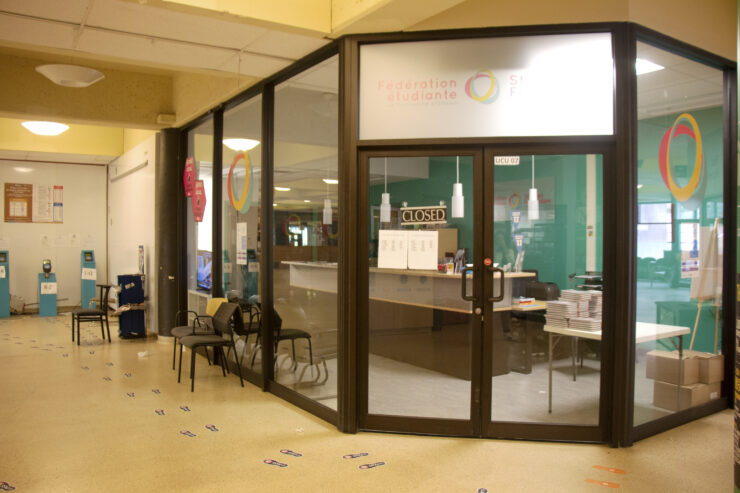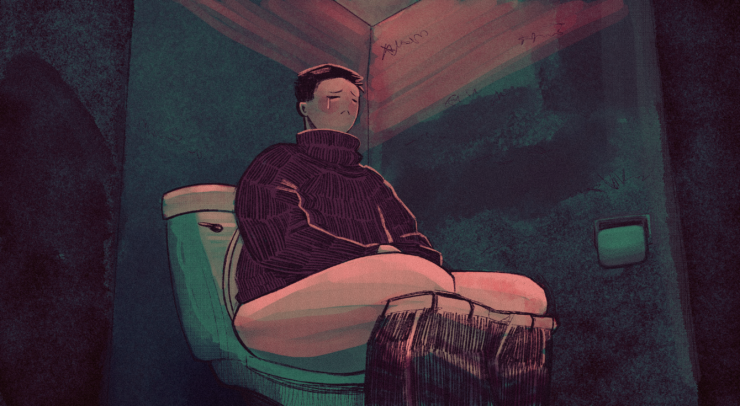An exploration of youth engagement in politics
IN THE WEEKS leading up to an election, youth are bombarded by campaigns encouraging them to vote. We are accused of being the most apathetic segment of the population when it comes to casting a ballot—and the finger pointers have it right. In the 2008 federal election, 37.4 per cent of voters between 18 and 24 exercised their democratic right to vote, while 58.8 per cent of Canadians and 67.7 per cent of Canadians 75 and over voted in that same election. So what the hell is wrong with us?
We’re voting less—but why?
In 2003, Elections Canada published a report on declining voter turnout in Canada. The top three reasons given by non-voters between 18 and 24 years old for not casting a ballot in the 2000 federal election were: Not interested/didn’t care; too busy; and no appealing candidates/parties/issues.
André Lecours, professor of political studies at the U of O, shed some light on the discrepancy in ballots cast by youth and their elder counterparts, as well as those who feel the election issues aren’t relevant to them.
“A lot of elections are fought on issues of spending and taxation, and this immediately reaches somebody who has a regular income, family responsibilities, kids,” he said. “Especially at the provincial level where we have a lot of policies that deal with families and health care—things that concern much more a 50-year-old than a 19-year-old.”
Although Lecours’ characterization of the election as one based on “taxation and spending” issues may leave some young voters feeling isolated, that feeling is not exclusive to younger citizens.
“[Exclusion is] a fairly common sentiment across the board,” said Gordon DiGiacomo, professor of political studies at the university, recalling his past experiences working in politics. “Young people are not alone in that.”
Post-secondary education has been highlighted by student-run organizations and politicians alike as a major “youth” issue in this election, a topic DiGiacomo feels is well-represented in many platforms.
“All of the major parties have provisions for student debt, education support, apprenticeship training for those who aren’t going to go on to university, and some of them are pretty substantial,” he said, but he also stressed that other election issues are relevant to students.
“All the issues in the public realm are of concern to you,” he said. “The cost of living is a concern for you; the environment is a concern for you; health care is a concern for you; the state of the province’s finances are a concern for you.”
Amanda Iarusso, president of the Political, International, and Development Studies Student Association and fourth-year political science and public administration student, also argued the importance of this election to students.
“We as students, as youth, have a lot at stake [in this election],” she said. “This election will determine the funding that’s going into job creation in four years. It will determine our tax rates. It will determine whether we can keep on affording the type of lifestyle that we want. It will determine whether you can go to school and do a professional degree. We have a lot at stake, so don’t think about today—think about four years from now.”
(Political) knowledge is power
Alec Manley, second-year master’s student at the U of O’s Graduate School of Public and International Affairs, is writing his thesis on youth engagement in the political system. Manley views voter apathy among youth as one of many expressions of disengagement with politics, something he attributes to a lack of political knowledge or civic literacy among youth.
“When someone says they’re too busy with work or too busy with something else [to vote], that ties back to civic literacy,” he said, which he defines as the knowledge of how to actively participate in politics.
Manley argues that if people aren’t taught about politics and civics effectively, they will be less likely to understand how they can impact the political realm—which will likely influence their decision to vote; however, voting isn’t the only aspect of participation that should be expected of young Canadians.
“You need to teach kids, ‘Yes, this is democracy,’ and give them the historical context, but you also need to teach them ways that they can engage and interact with it beyond just voting,” Manley said.
In his research, Manley assesses different models of civic education, evaluating how they can increase political knowledge—and thus participation—among youth. He thinks civic literacy needs to become a priority for politicians.
“No one in the last federal election talked about youth political knowledge or youth efficacy beyond that [youth] just don’t vote—that’s where it’s left for the most part,” he said. “No one is looking to solutions; parties aren’t pushing things like this.”
Iarusso also stressed the importance of educating citizens about voting and the political process at a young age.
“I think that is the only way to produce an engaged electorate,” she said. “For example, in Grade 10 in Ontario there is a civics class—I really don’t think that’s an adequate requirement to ensure that we’re producing a really engaged electorate by the time youth turn 18.”
Although Lecours and DiGiacomo, both of whom teach the introductory Canadian politics course at the U of O, believe it wouldn’t hurt anyone to be a bit more informed about the political system, neither thought our generation was any less informed than those before us or compared to other segments of the population.
“There’s no difference between generations,” said Lecours. “Overall, knowledge of our institutions, how they work, and how votes get translated into seats is low, but I think that’s across generations.”
Voting—it’s not the ‘be all, end all’
Despite the attention given to voter apathy among youth by student-run organizations, the downward trend in voter turnout rates among young people is not a concern to DiGiacomo.
“I don’t lose any sleep over it,” he said. “Voting is not the be all, end all—or even the major—indicator of whether somebody is apathetic or not.”
“There are a lot of scholars who talk about other forms of engagement that don’t necessarily get measured by voting,” Manley said, noting voter turnout rates are just one of the more quantifiable measures of participation.
“There’s studies that say youth volunteer at higher rates than older people do, so although there might be a difference in voter participation, youth are volunteering more and are still engaged with civic society,” he said.
Lecours too felt that youth are actively engaged in the political process.
“To me, it seems that young people are better [than older people] at participating in the political system between elections,” he said, mentioning our age bracket is particularly good at using social media and organizing demonstrations, especially compared to our elder counterparts.
“I find most young people are—well, maybe because I teach political science—more engaged than I am and a lot of my age-group peers outside elections.”
Iarusso isn’t sure that every campus across Canada is as politically active as the University of Ottawa.
“The University of Ottawa—[though] it has its benefits and its consequences—very much fosters and engages voters,” she explained. “I think it’s the environment in which this institution lies—we’re in the core of the Canadian political system.”
“This sort of political engagement is not prevalent in campuses across this whole country, and that’s something that needs to be examined.”
Come Oct. 6…
Although youth are encouraged to go out and vote in droves on Oct. 6, Manley stressed the importance of widening our civic literacy between elections.
“It’s pretty simple,” he said. “Read the news and stay informed on current Canadian affairs. Talk to your friends. Talk to your professors.”
“At the end of the day, the onus is on the person to go out and read a bunch of different things for themselves, talk to their friends and engage in a casual debate about some issue.”
—Mercedes Mueller



